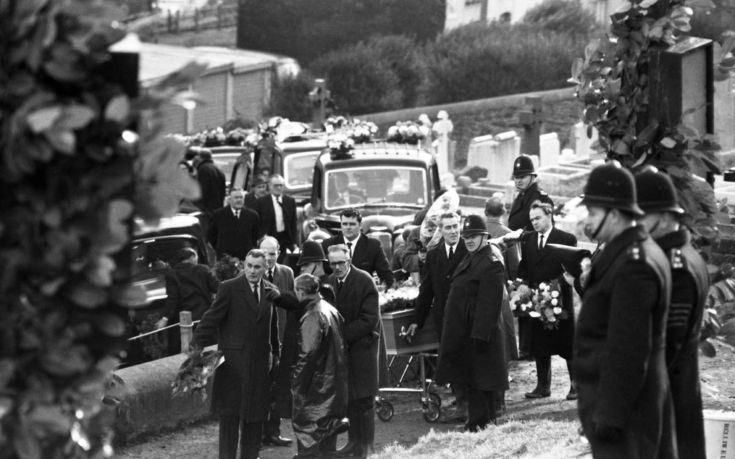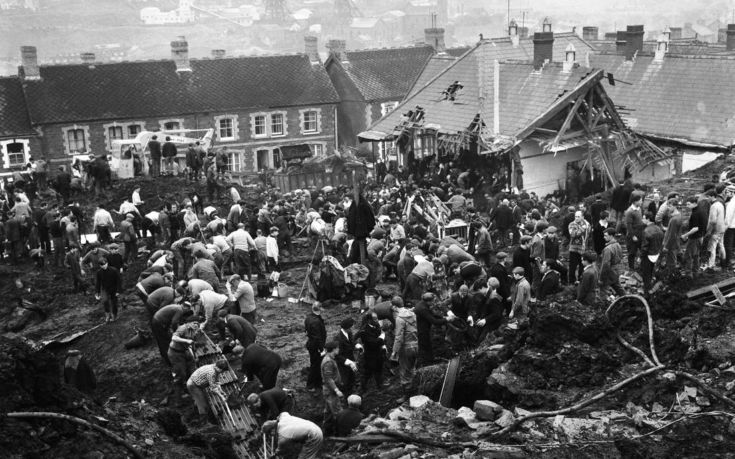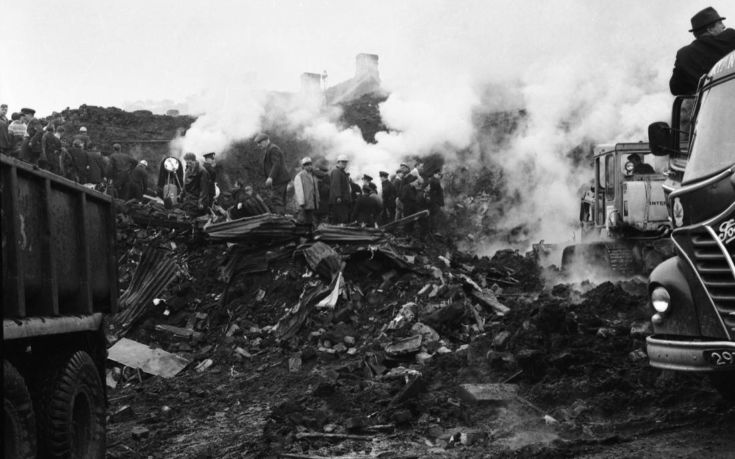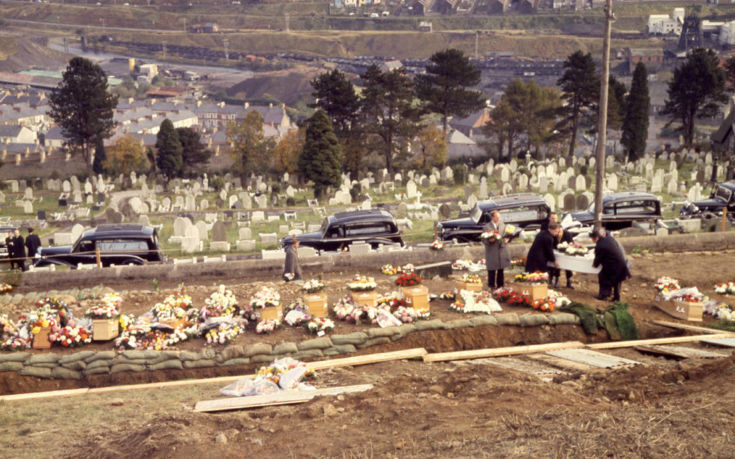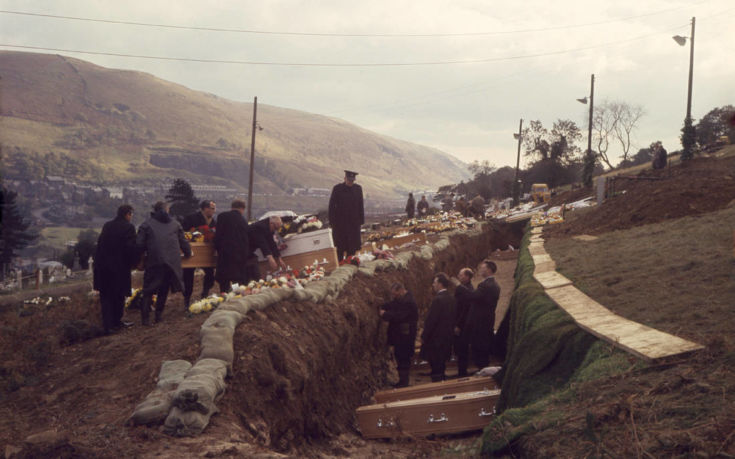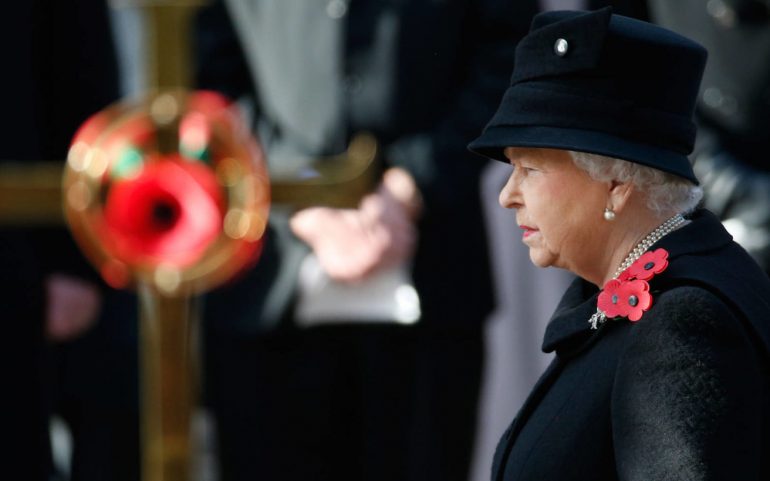October 21, 1966 was for the people of the village of Aberfan in Wales a day they will never forget for as long as they live. Rain and fog formed the typical weather scene, while the children were getting ready to go to school for only a few hours, as they followed a short vacation.
At 9:00 in the morning, while the bell had just rung and the students were in the classroom, a roar was heard from the mountain, as if a plane were landing. Within minutes, three tons of coal waste mud from the nearby mine were displaced by rain-induced erosion and fell like lava onto Padglas Elementary School.
The first moments of the tragedy, which marked the history of Britain, had just been written. The mud frenzy dragged 144 people to their deaths - 116 children and 28 adults, mourning entire families who were called to identify the bodies of their children, who had been taken to a nearby chapel and covered with blankets.
And while the Queen Elizabeth was informed of the evil that had happened, chose to go to the scene of the tragedy 8 days after the incident, a mistake that, as he admitted years later, he regrets to this day. The people of Aberfan, however, did not see it that way, saying that the monarch had left and that was enough.
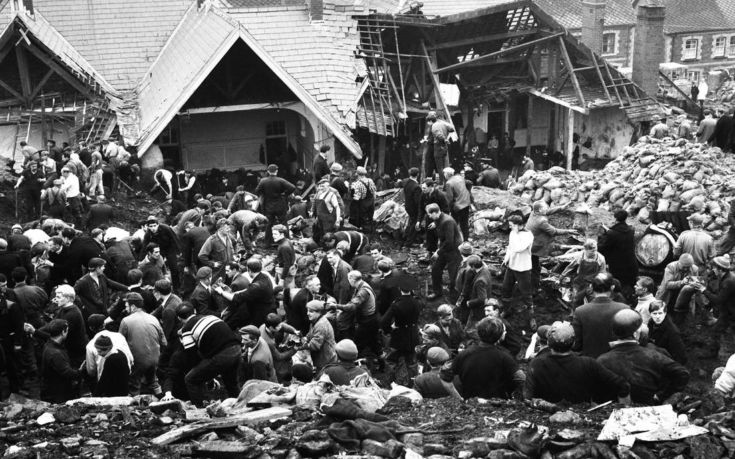
Wales had become famous for coal mining during the Industrial Revolution, and at its peak in 1920, 271.000 people worked in mines of the country. Coal mining was in decline until the 1960s, but it continued to feed some 8.000 miners and their families around Aberfan.
Coal mining generated waste which was disposed of in landfills. The Merthyr Vale area had seven such landfills and by 1966 the seventh landfill had reached a height of 33 meters and contained 3 tonnes of coal waste. In 1963 and 1964, residents and local officials repeatedly expressed concern about this landfill, which was located above Padglas Elementary School, which had 240 students. But the National Coal Council (NCB) was unaware of them.
It only took a few minutes for the evil to happen. The students heard a roar and thought that a plane was flying over the building. Coal waste mud, which had liquefied due to heavy rainfall, hit the school like an avalanche, burying children in the rubble.
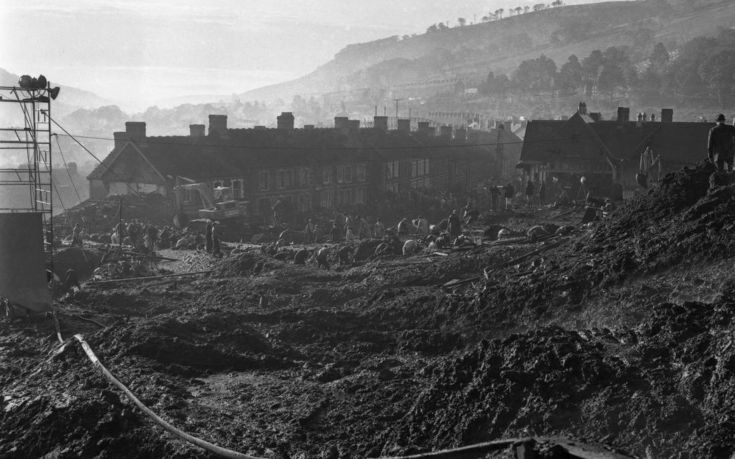
Rescue crews and volunteers rushed to the scene to help find survivors. "Miners, police, firefighters were digging with their bare hands, looking to find live children. The bulldozers were pushing the wreckage to reach children"as cries and desperate cries for help were heard from some places," the New York Times reported.
After almost two weeks of research, the report came. 144 people had lost their lives (the mud in its passage had leveled houses), of which 116 children, while 28 were saved. Half of Aberfan's child population was dead.
The bodies were placed covered with blankets in a small church, in which only two people could enter at a time to identify their children, a process that lasted almost a week. Most children died of suffocation.
Investigations concluded that the National Coal Council was responsible for the tragedy, although no staff member was fired or found guilty. The court report stated that "Aberfan's destruction could and should have been avoided. "The catastrophe was not a matter of malice, but of ignorance, indifference and failure in communication."
In fact, the National Council did not want to compensate the families of the dead. At first he gave the humiliating sum of 50 pounds for each family. He also used to ask families how close they were to their children to judge if they were entitled to the amount! After the general outcry, the compensation reached λί 500.
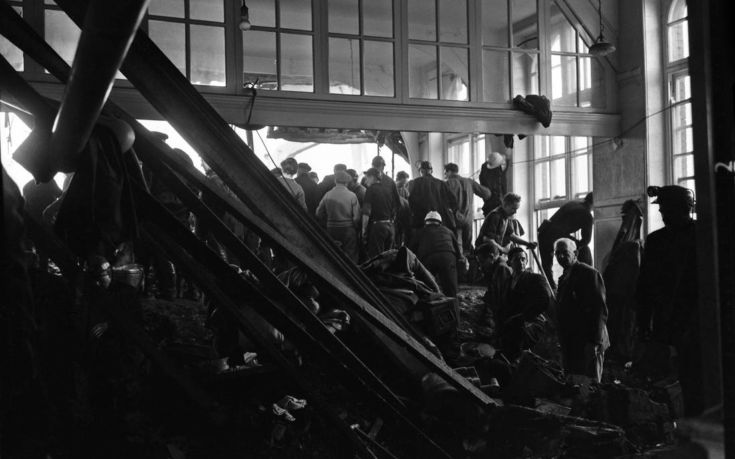
Britain mourned, but Queen Elizabeth chose not to visit her place immediately tragedy. While Prince Philip went to Aberfan the next day, the monarch paid a visit eight days later, a decision he still regrets today.
"Aberfan influenced the queen a lot when she went there. It was one of the few times she cried. I think he felt he could have gone earlier. It has been taught to all of us, you have to show compassion and be in the right place at the right time. That is what the British longed for, "said Sir William Heseltine, who worked for the Palace Press at the time of the Elizabeth: The Queen documentary.
According to Sally Bechdel Smith, who wrote one of the Queen's biographies, Elizabeth's decision not to go to Aberfan immediately was not a cold one, but a practical one. "I will turn all eyes on me. And that can cost a living child, "said the Queen, according to Smith.
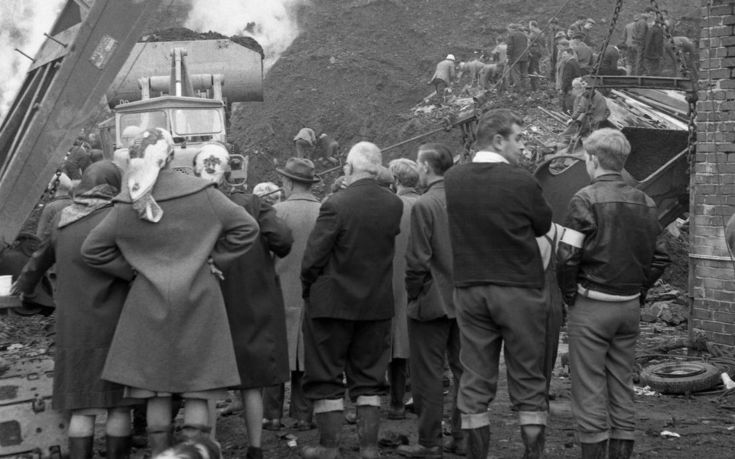
Elizabeth's circle told her she had to make the trip, but she did not change her mind. "We put forward all the arguments but nothing convinced her," one of her advisers told Robert Lacey, also a biographer.
Despite the fact that the press judged her in various ways, the same did not happen with the British. "When she arrived she was upset, the people of Aberfan thought she was there. "She came when she could and no one would condemn her for not doing it earlier," Jeff Edwards, one of the children who survived when he was eight, told the South Wales Echo in 2002.
Since then, Queen Elizabeth has visited Aberfan four times. In fact, in 2012 it was at the inauguration of the new one school which opened in place of the ruined Padglas.
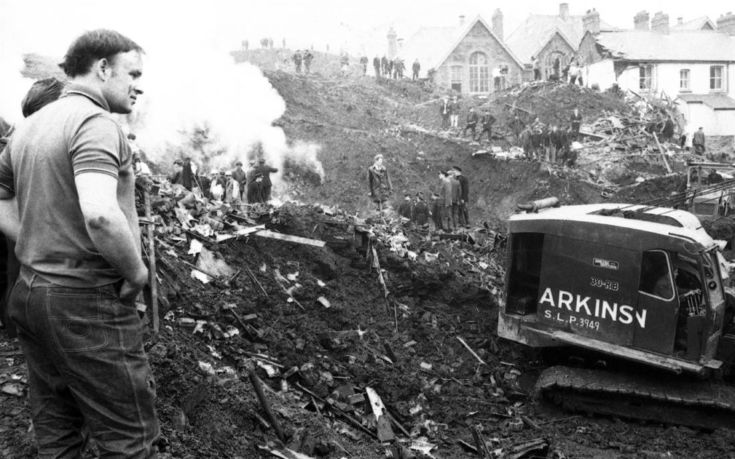
Jeff Edwards was the last child rescued from the wreckage of Padglas. What he went through, as he tells the BBC, "destroyed" his DNA and he decided never to have children in his life.
"My personality, my whole being has changed radically and I did not want to perpetuate my DNA. One minute we were innocent eight-year-olds waiting for our vacation and then we became completely different people. "We will never be the same," he says.
Jeff vividly describes the moment of the catastrophe, when the noise was getting louder and louder.
"The next thing I remember was waking up with my right foot stuck in the radiator, from which water was coming out. My desk was nailed to my stomach and the head of a dead girl was on my left shoulder. There was debris all around me. Her face haunts me. I heard cries and screams. "As time went on, the voices stopped, my classmates died," he says. The crews took 1,5 hours to free the 8-year-old.
And it continues:
"You feel guilty for surviving. You say "why me?". They took away our childhood. The game is an important stage in the development of the child and they took it from us. "Most of the children we played with were dead."
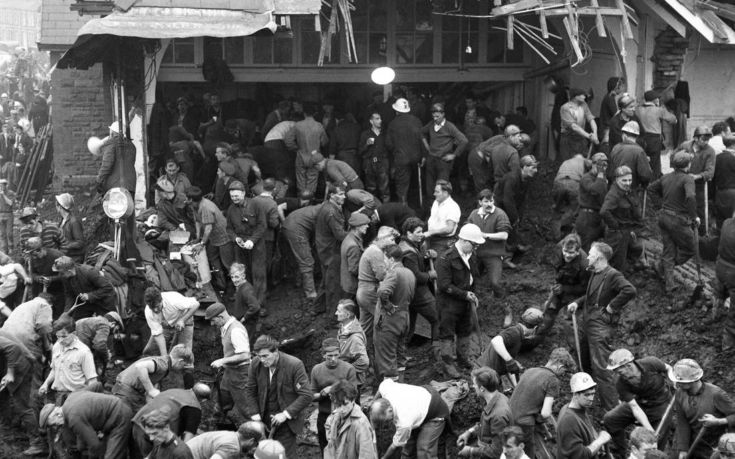
But guilt was not the only burden. In 1966 post-traumatic stress was difficult to recognize.
"After the disaster, psychiatrists approached us, but their help was in infancy. They did not know how to handle situations and did not help us much. We did sessions and took various medications. We did not want to go to school, we were afraid the same thing would happen. "Those of us who lived had to deal with the loss of our friends and the slaughter scenes we had seen."
"You want to escape, but you can not and you will never be able to," he says. "Some days I get overwhelmed with depression and I can't work, I can't even get out of bed. "Somewhere back you can still smell the coal that flooded the school," he says.
Jeff says how difficult human relationships are for survivors.
"Some moved, some died early, struggling to accept the losses. Marriages have broken down because of the hardships of living with someone who has experienced something so hard. "Thoughts are irrational, there is irritability and difficulty in trusting each other," he says, explaining that he never married.
The third cycle of the series "The Crown" is a representation of Elizabeth's visit to the site of the tragedy. The production used survivors of the tragedy who, with the help of a psychotherapist, revived their tragic experience.
